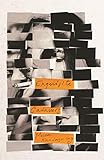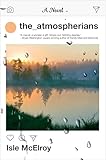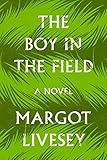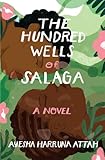This
year has felt fragile and increasingly apocalyptic, with COVID-19 reconfiguring
our relationships to the world and one another in traumatic ways. Starved of the
everyday form of human contact, I found myself no longer fashionably
“independent,” extroverted-introvert that I am, but, literally, isolated.
At the beginning of August, the United States Postal Service delivered a box of books I had shipped when I moved from Iowa City to Boston with only five books inside and thirty-seven books missing. (These were some of my most prized books, some signed by writers and friends from the USA and abroad.) USPS has not been able to recover the books or explain what happened to them, and I find myself entangled in a bureaucratic nightmare that rivals a Kafka novel. In all of this, books, which have always accompanied me in the world, have continued to provide comfort as well as pleasure.
Some highlights:
The stories in Milk Blood Heat by Dantiel W. Moniz are glorious. We meet an eclectic cast of Floridians grappling with questions of what it is to be human and how to live in the world: difference, girlhood, womanhood, manhood, pleasure, loss, and the visceral desire to belong. The prose pulsates with wonderment, easing us into moments of discovery that surprise, and deepen, both our and the characters’ sense of the world. I enjoyed, particularly, the ways in which these stories are filled with incisive bursts of ecstasy, broadening our experience of joy and heartache.
Reading Just Us by Claudia Rankine was an experience in just how complex language is, with its many pockets and layers of meaning. I found this profound book to be both revelatory and devastating, urging me to contemplate language, race, America and the world in the cogent ways that probing writing does. There is an incisive yet gentle, human depth to the writing. Rankine’s utilization of poetry, prose, historical documents, speeches, photos, conversations—in short, the human archive in all its diverse expression—made for a layered, deeply historical, contemporary reading. I love how the book puts these various modes in conversation, and the author’s capacity for self-critique.

Earlier this year, I had the pleasure of being Garth Greenwell’s interlocutor at the launch of his novel Cleanness at Prairie Lights in Iowa City. I am yet to read anything like this sparkling, at once pornographic and philosophical gay novel. The novel is wonderfully aware of reading as first and foremost a private experience. Perhaps this is why it distills intimacy incisively, merging the graphic exploration of sex with the literary medium of consciousness, affording us a window into the erotic experience and its more hidden psychological impulses and foundations. Greenwell’s delectable prose is only rivaled by the smart and generous ways in which he speaks about writing and art.

The Dragonfly Sea by Yvonne Adhiambo Owuor is epic in the true sense; not only does it contain characters who swell with multiple worlds—the novel’s protagonist, Ayaana, is an avid reader of world literature—but it spans two continents and multiple languages. Reading this book, I felt as though I were consuming not just the world, but an entire universe.

Exquisite Cadavers by Meena Kandasamy is best read as a physical book as its ebook form (which I think was discontinued) fails to capture its original formatting. The two-column format of the book presents questions about how we read, what story is, and what a novel can be. The lives of Maya and Karim, a young, London-based couple, are rendered in prose that is both poetic and ironic, while the voice of the author-character, sitting side-by-side, is at once philosophical and grimly witty.

Reading An Orphan World by Giuseppe Caputo is like slipping into a dream-world. The novel is translated from Spanish by Sophie Hughes. The prose is patient and absorptive, so that I found myself, while sleeping, dreaming of the narrator’s forays across the unnamed seaside city and the psychedelic orgies he partakes in at a gay club.

There were so many laugh-out-loud moments in The Atmospherians by Alex McElroy that I couldn’t stop reading (and LOLing). What wicked satire. The novel’s protagonist, Sasha, has a charming capacity for self-irony. This novel is at once hilarious and serious. I love the ways in which it speaks, with such insight, to our age of woke-ness. It is as though it has swallowed the world, and it is us who are living inside it.

I found I could not put down The Theory of Flight by Siphiwe Gloria Ndlovu. Set in an unnamed Southern African country, the novel narrates the monumental life of a woman named Genie Nyoni, hatched from a golden egg and who, upon death, is seen flying “away on a giant pair of silver wings.” There is an ethereal enchantment that the prose brings to the tumultuous history of this unnamed country.

I enjoyed the ways in which the essays in We Can’t Breathe by Jabari Asim ease us into personal moments, be it familial hilarity in his childhood home or the politics of “strutting” down the street as a black man, and then explode the personal with panoramic incisions into the black experience in America, bringing to bear history, politics, music, art and philosophy. The collection’s longest essay, “The Thing Itself,” delves into white culture’s vulturization, even in art, of black lives. It is especially moving and trenchant in its panoptic inquiry into the deaths of Emmett Till and Michael Brown.

There is a clarity to the prose of The Unpassing by Chia-Chia Lin that makes the tribulations of a Taiwanese-immigrant family trying to plant roots in Alaska riveting. I found this novel compelling for its nuanced exploration of our primal yearnings—a desire to belong, and the perennial attempt to build, or find, or make places in which we may fit.


Some other memorable reads and rereads this year: Real Life by Brandon Taylor, The Autumn of the Patriarch by Gabriel García Márquez, Dear Friend, from My Life I Write to You in Your Life by Yiyun Li, The Boy in the Field by Margot Livesey, Piggy Boy’s Blues by Nakhane Touré, Speak, Memory by Vladimir Nabokov, If Beale Street Could Talk by James Baldwin, A Girl is a Body of Water by Jennifer Nansubuga Makumbi, 10:04 by Ben Lerner, Memorial by Bryan Washington, Essays One by Lydia Davis, A Sacrament of Bodies by Romeo Oriogun, The Hundred Wells of Salaga by Ayesha Harruna Attah and The Undocumented Americans by Karla Cornejo Villavicencio.
More from A Year in Reading 2020
Do you love Year in Reading and the amazing books and arts content that The Millions produces year round? We are asking readers for support to ensure that The Millions can stay vibrant for years to come. Please click here to learn about several simple ways you can support The Millions now.
Don’t miss: A Year in Reading 2019, 2018, 2017, 2016, 2015, 2014, 2013, 2012, 2011, 2010, 2009, 2008, 2007, 2006, 2005
The post A Year in Reading: Novuyo Rosa Tshuma appeared first on The Millions.










